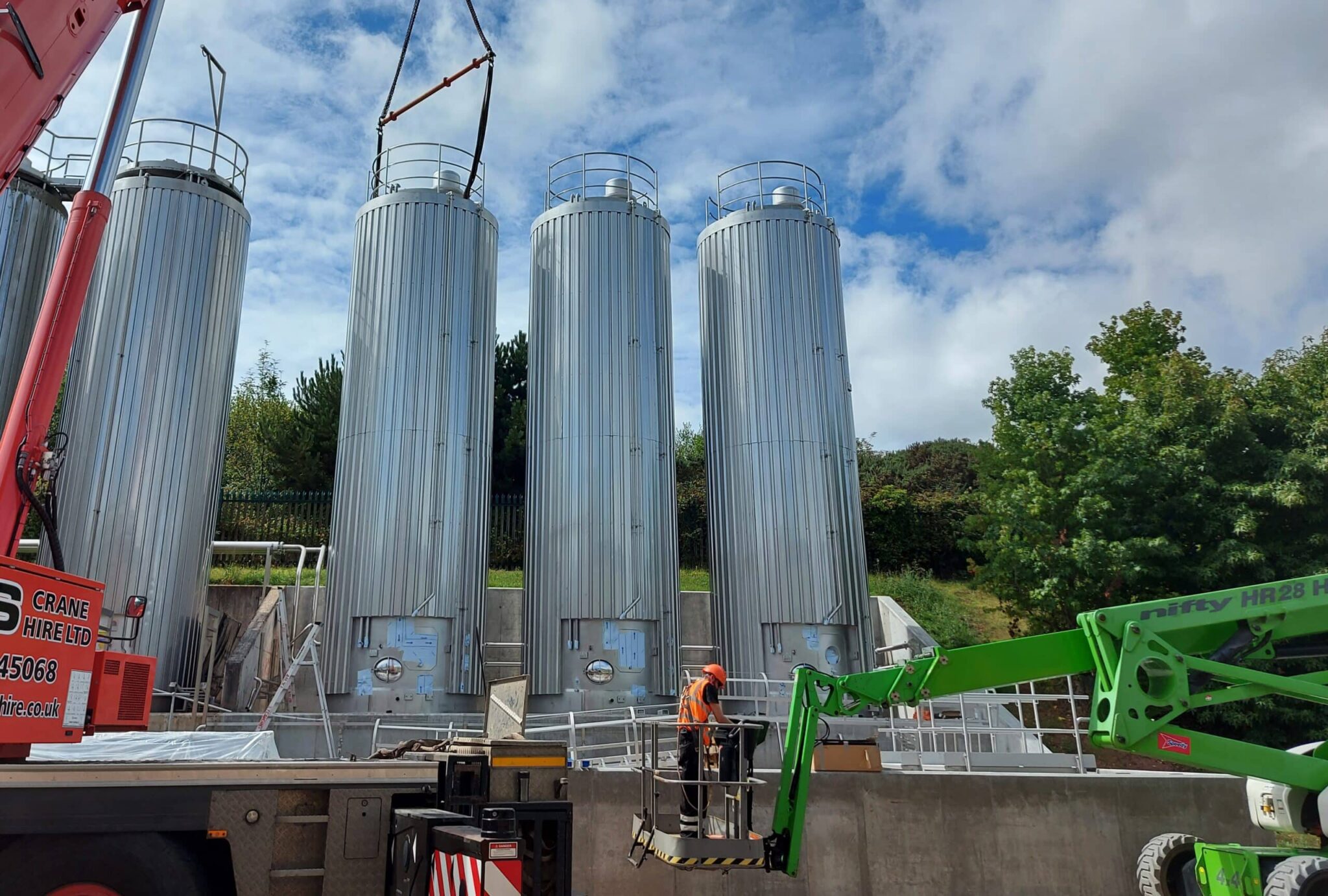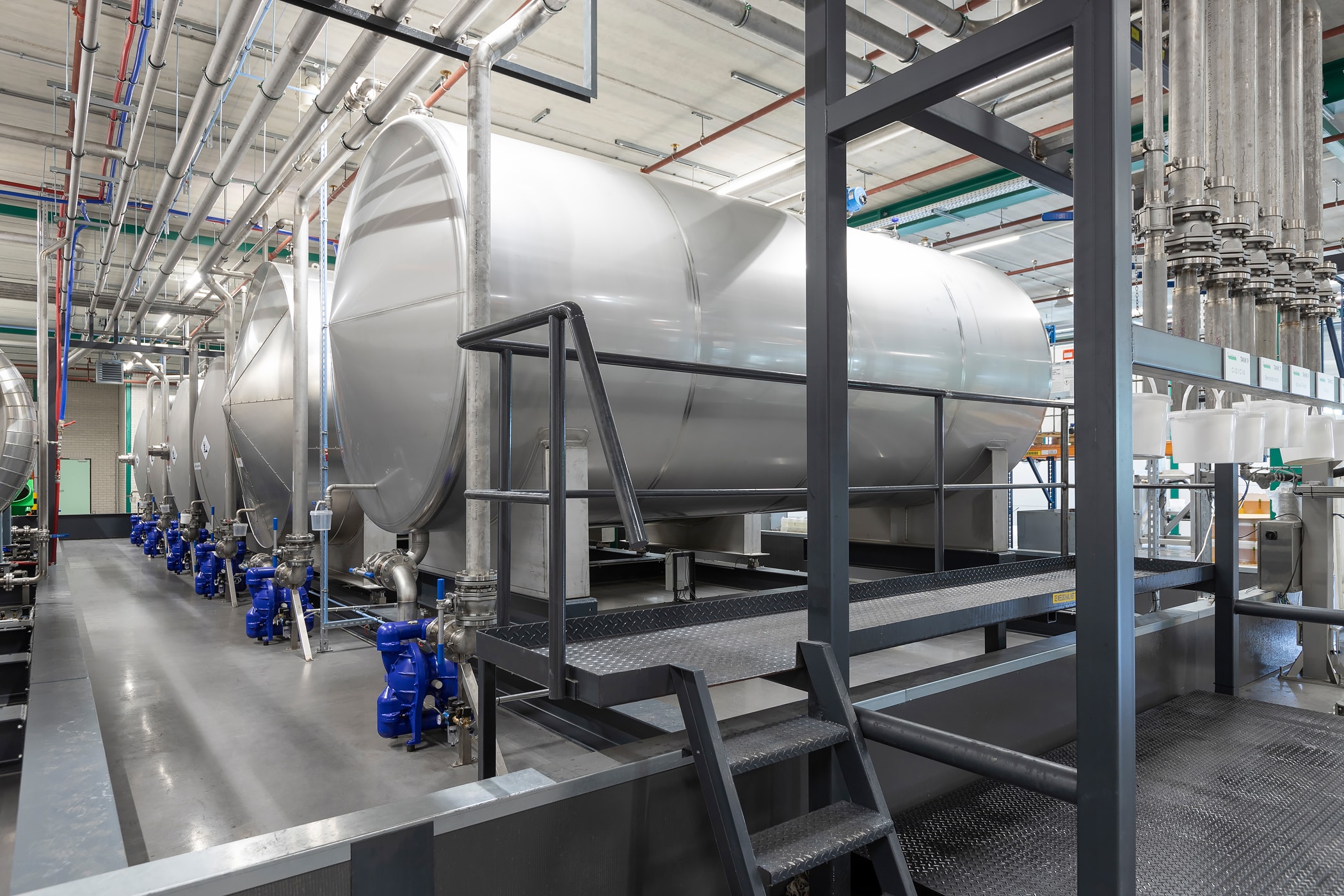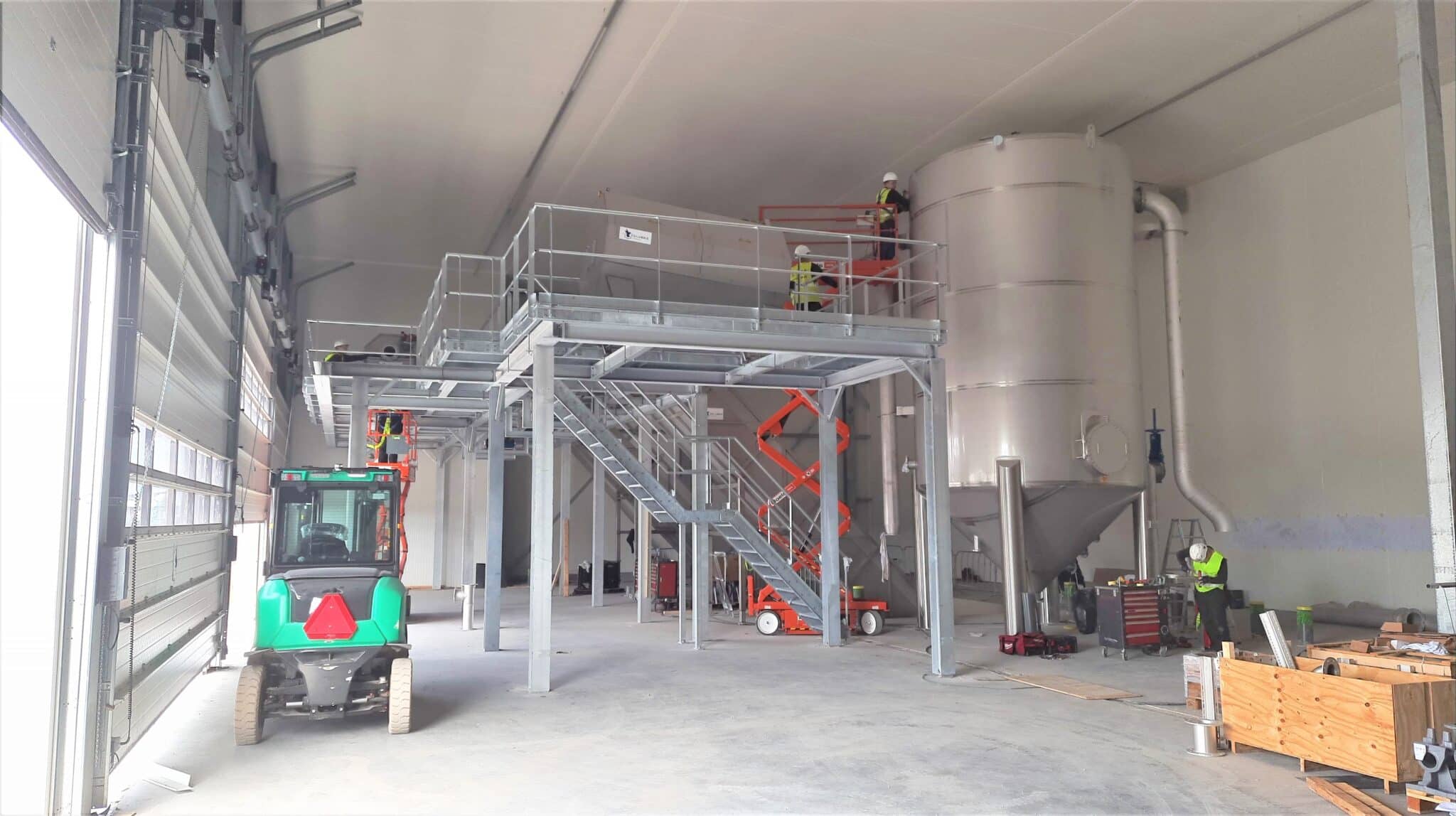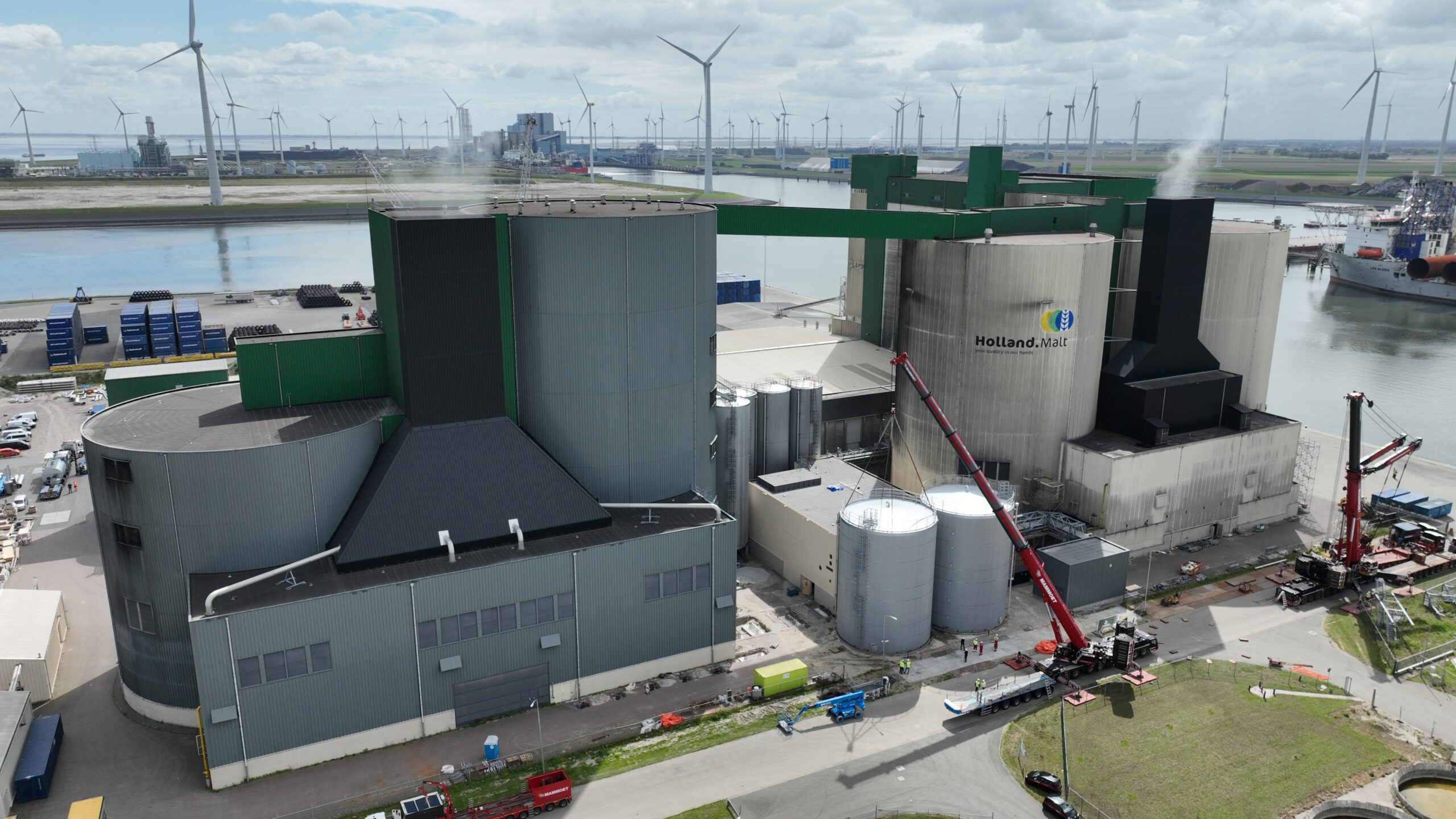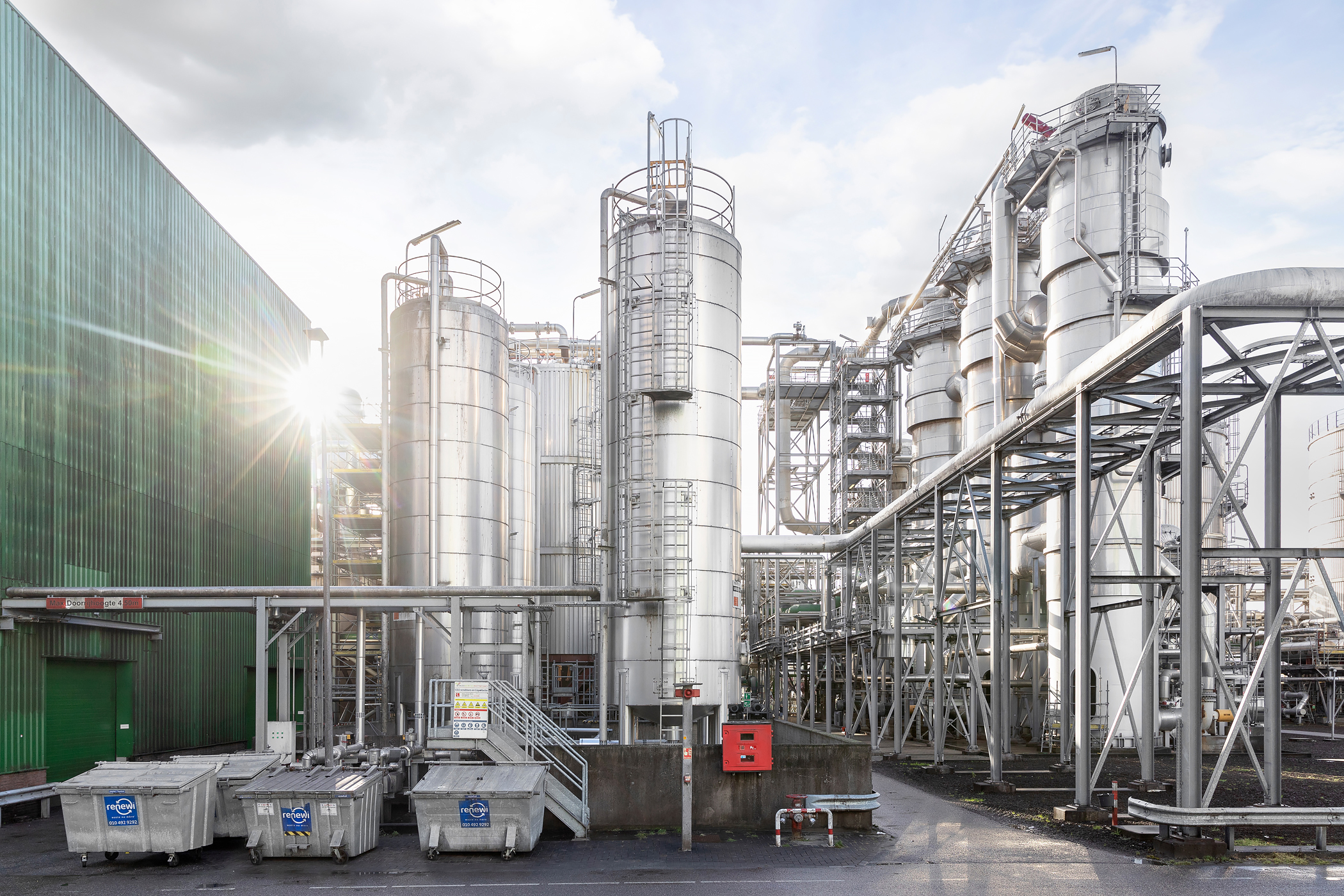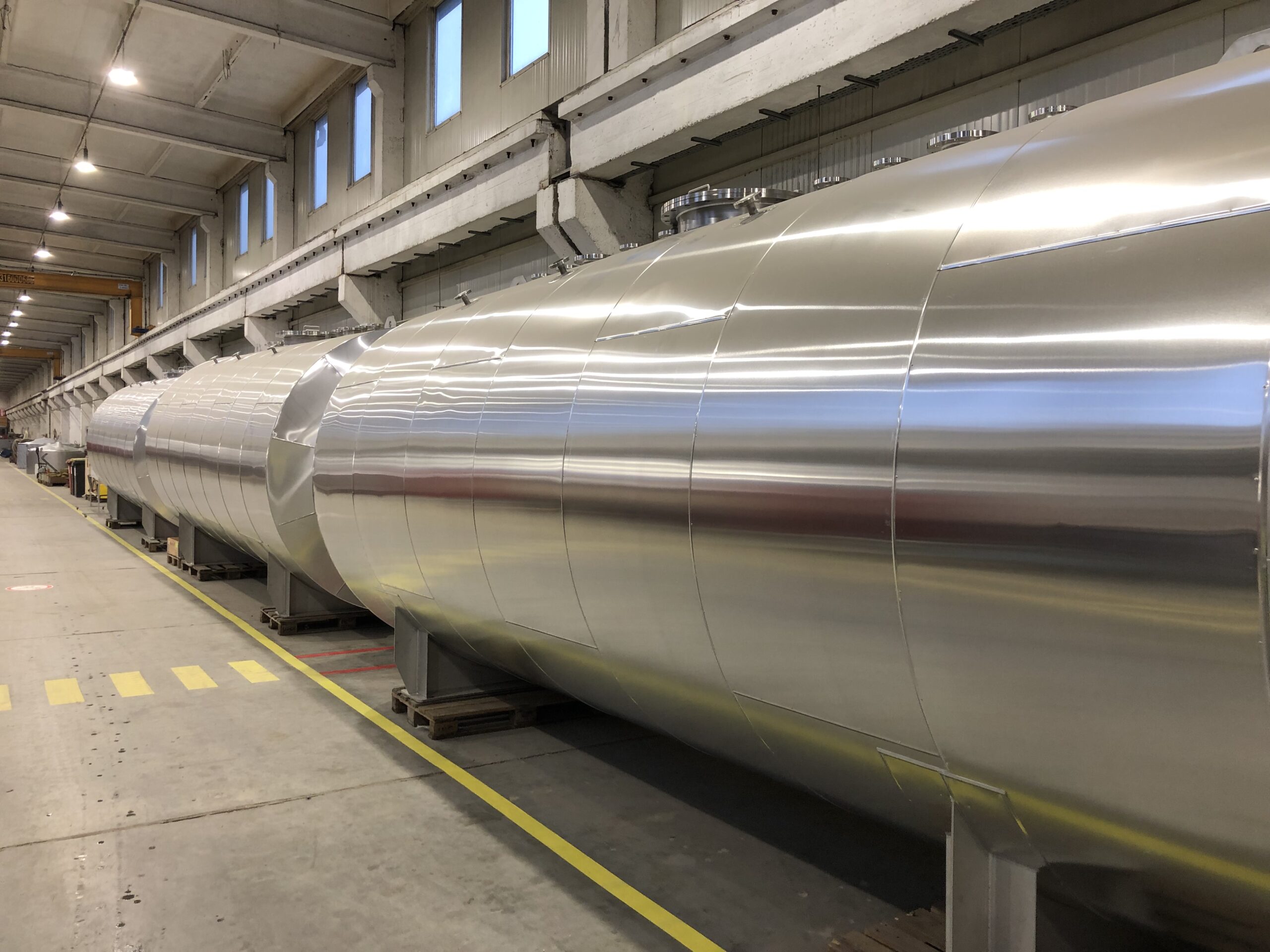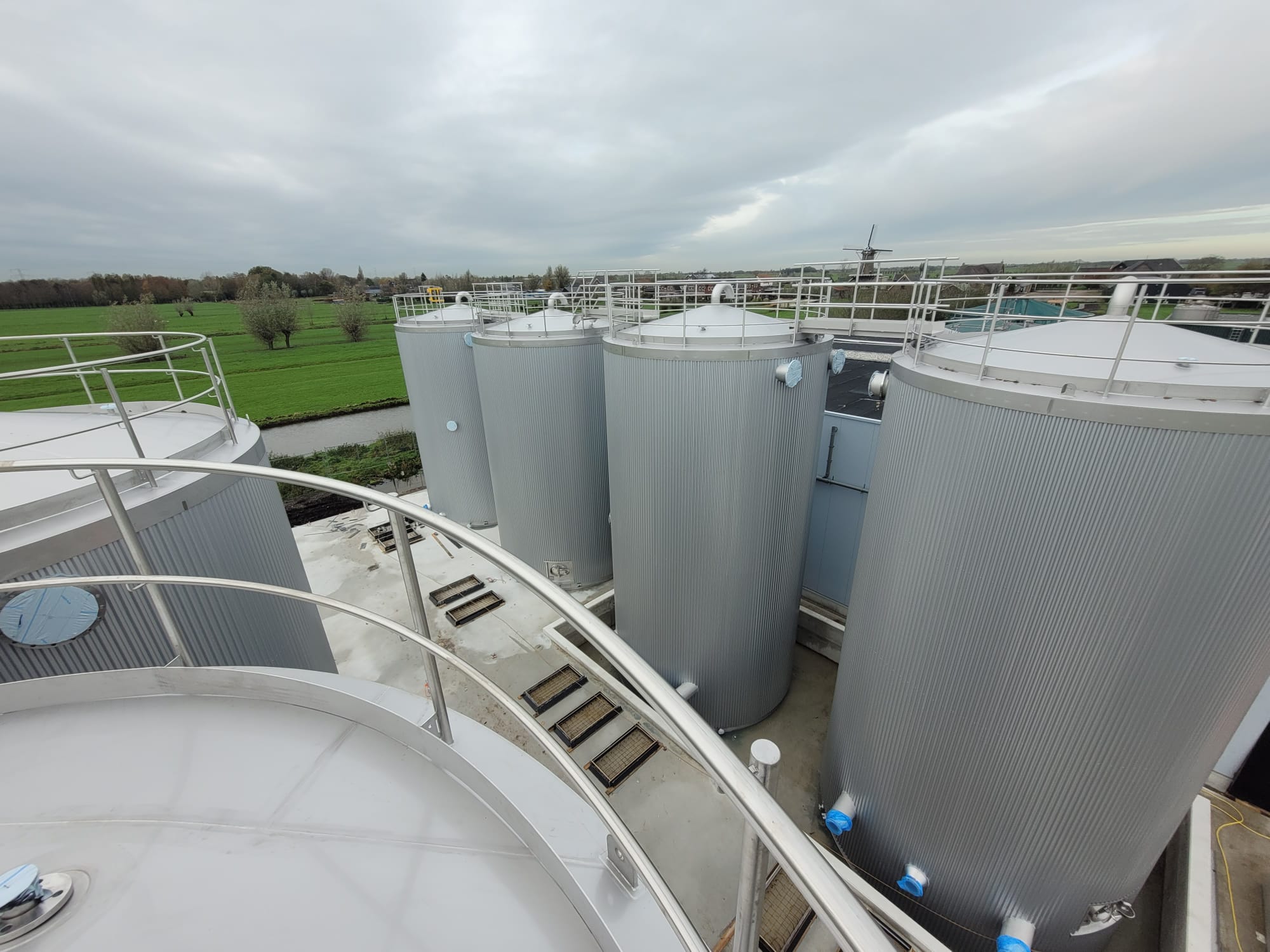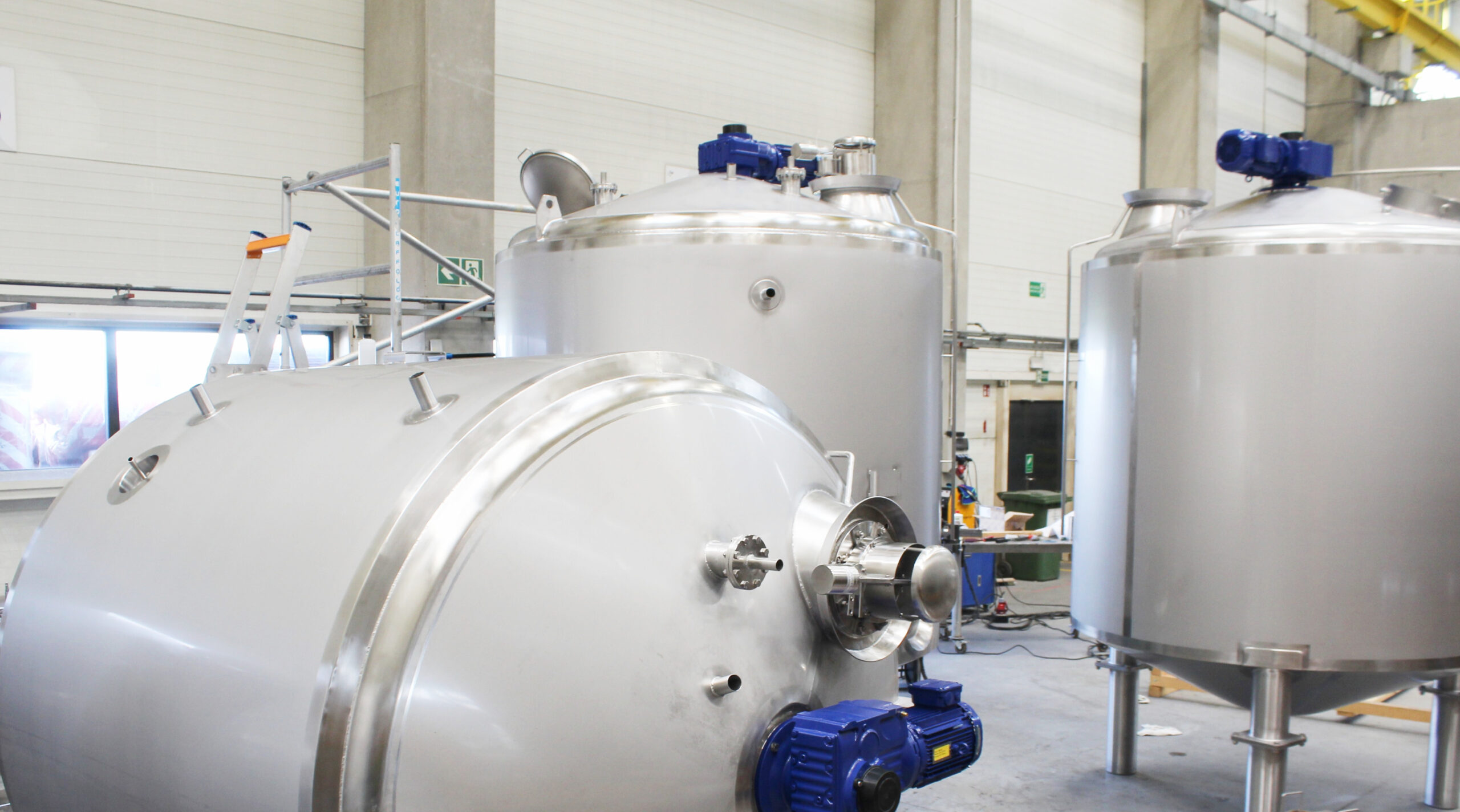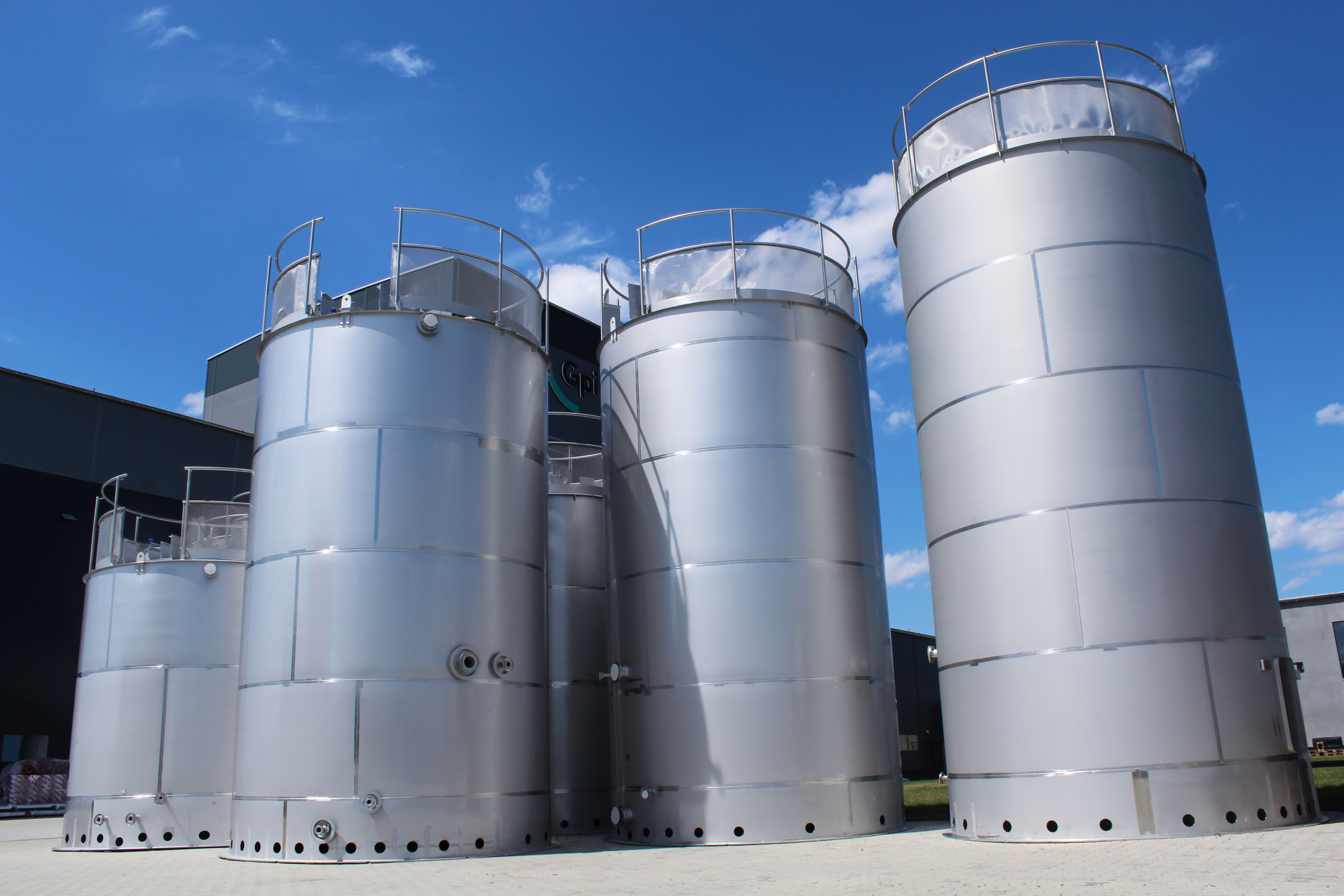Horizontal storage vessel
Above-ground horizontal cylindrical tanks of up to 150 m³ for the pressureless storage of liquids
KIWA BRL-K796 guideline
The KIWA BRL- K796 guideline covers horizontal above ground single walled, double walled and compartment tanks. Gpi is very experienced in designing and producing single and double wall horizontal cylindrical tanks. We can produce according to the mentioned guidelines and in addition we are KIWA certified for above ground vertical tanks (KIWA BRL- K756).
Horizontal tanks installed in accordance with the BRL-K796 contribute to the realisation of a negligible soil risk and the prevention of risks for the environment and unusual occurrences, or, to the extent that this is not possible, to the limitation of risks for the environment and the chance of unusual occurrences.
NEN-EN 12285-2:2005
The BRL-K796 is largely based on the European standard NEN-EN 12285-2:2005. This means that the requirements to be imposed on the tanks and the methods of determination have been laid down here.
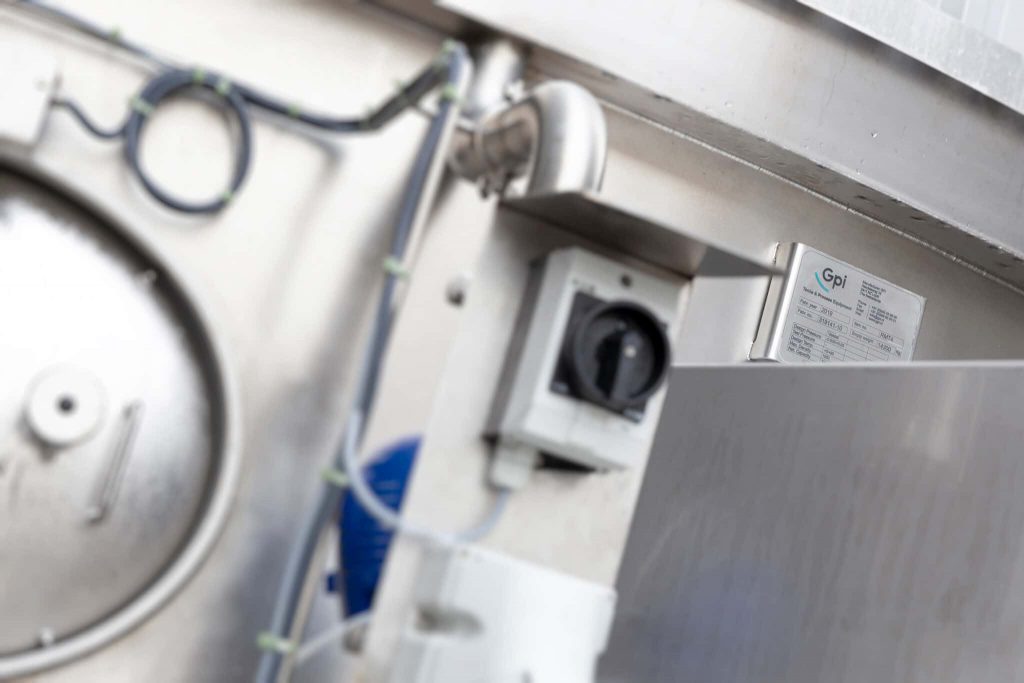
Do you have any questions about our horizontal storage tanks?
The BRL-K796 directive specifies a very concrete tank design, including the following conditions:
- The storage tank must be fitted with a manhole of at least 600 mm;
- A double-walled tank shall be provided with a gap over the entire surface of the double wall;
- The wall thickness of the inner tank, the outer tank, the bottoms and any compartment bottoms must at least comply with EN 12285-2:2005 and/or BRL-K976-02;
- Mandatory connections to the tank:
– Level/water discharge pipe.
– Extra level/water discharge pipe; mandatory for tanks with a cylindrical length of more than 10 m; diameter min. 1½”.
- Ventilation; diameter min. 1½” (DN40);
- In the case of two filling pipes on 1 tank or compartment for discharging the same product, the diameter of the vent must be equal to half the total diameter of the filling pipes.
The complete specification can be read here on the KIWA site.
Under certain conditions, and only in consultation with KIWA, it is possible to deviate from certain conditions if this does not pose a risk to nature and safety.
Read more about our certification and building codes.

Specifications
- BRL-K796/02
- Horizontal unpressurised storage tanks
- For storage of environmentally hazardous substances
- Mandatory in a BRL-K903 installation
- Tanks must at least comply with the requirements in all articles of EN 12285-2:2005 / BRL-K976-02
- 150 m3
- Max diameter within EN12285-2 up to 3000 and according to BRL-K976-02 from 3000mm up to 3500mm.
Options
- Single or double walled
- Leak detection




